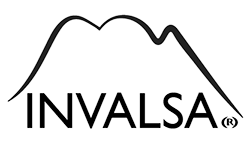Arrived in March 2024. Please order in advance to secure your supply. Packed at origin in 50-kilo GrainPro® bags. We usually run out before the new crop arrives. To ensure ongoing supply we will be happy to write you a contract.
You are probably aware that cacao prices are at record highs. We paid significantly more to the farmers and we had to increase our prices.
These cacao beans were grown and processed in our centralized fermentation plant in the community of Buena Vista, near Sapecho, Palos Blancos, Alto Beni, Bolivia, by the Alto Beni Cacao Co. (ABC) an Invalsa Coffee sister company.
These extremely rare, Heirloom (Silvestre, Wild, Boliviano) cacao beans are purchased unprocessed (in baba) by the ABC team near our plant in the Alto Beni region. Once dried, screened and homogenized, these cacao beans are packed in GrainPro® bags at 7.5% humidity. They are significantly smaller than our other Walikeewa (Hybrid, Amelonado) beans. but they have 10% more cacao butter, and lots more flavor. Hybrid cacao beans have about 55% cacao butter, while our Heirloom Beniano beans have 65%, which means higher percentage chocolate on the bar without additional cacao butter. This is a Heirloom variety that has been recognized at Cocoa of Excellence (CoEx) competitions.
Our heirloom (Boliviano) cacao beans that are the same as the #2 HCP Heirloom Cacao 2 (Heirloom Cacao Project), which have the 97.3% Boliviano and 2.7% Upper Amazon Forastero Genetic Profile. They were registered at the HCP by our good friend and cacao-export customer Volker Lehmann. Below is the Genetic profile published in the www.hcpcacao.org website:
“This chocolate has the complexity of one of the illusion paintings” commented one HCP Tasting panelist. Additionally, this bean was celebrated for its extremely complex mix of chocolate, fresh citrus, and aged fruit flavors.
USDA Genetic Profile

ABC's cacao business started in 2009, when Alex Whitmore, founder and CEO of Taza Chocolate in Somerville, MA, contacted us to help his company source organic Bolivian cacao. At that point, we knew a lot about Bolivia and Bolivian coffee, but nothing about cacao. Alex has been an excellent teacher and in 2010, we sourced Taza Chocolate's first shipment of direct-trade, organic cacao from Palos Blancos, in Alto Beni region of Bolivia. Because of Taza's changing product mix, we no longer supply Taza Chocolate. We now sell our cocoa beans directly to Chocolatiers worldwide in North America Europe and Japan.
We are very excited to now be working with independent growers and Indigenous Communities to revolutionize the Bolivian cacao industry by building a first-in-country, industry-leading cacao fermentation plant and nursery for high-quality Bolivian cacao seedlings in the Palos Blancos region. Construction of the plant was finished in 2013, production started in the 2014 growing season. Our project is called the Alto Beni Cacao Co. 2023 is our ninth year of cacao improvement and processing in our centralized plant in Buena Vista.
ABC works, and pays for the organic certification of about 100 cacao-producing families in the Alto Beni region (Tucupi, Alto Remolino, Popoy, Sapecho, Covendo, etc.). We also have a 10 Ha. parcel in Buena Vista (on the paved road from Sapecho to Yucumo) where our modern, centralized fermentation plant is located with 4 Ha. of planted cacao trees. 2019 was our first year of production of our own cacao trees.
Our current production capacity of Heirloom is 10 MT annually.
How do I roast cacao beans?
To roast cacao beans, you need to expose them to a high temperature, close to 325 degrees, and then gradually lower that temperature for the next 15 to 30 minutes. You lower temperature to prevent burning of the outside of the beans while the inside gets appropriately hot, and kills all the bacteria and mold that may be left over from fermenting the fresh cacao beans. When the beans start to pop (from water evaporation), making a sound known as the "crack" in coffee roasting parlance, they are very close to being finished. You want to stop just after most are finished cracking, but not so long after that they start to smell burnt. It is a trial-and-error method and you will get better as you roast more cacao beans. Many coffee aficionados roast their own coffee at home to ensure the highest degree of flavor and quality, and save lots of money in the process. If you are one of them, you can do exactly the same thing for cacao beans. Even if you don't roast coffee at home, but just love the flavor of high-quality cocoa or chocolate, you can follow these quick, easy steps to roast your own cacao beans in your own kitchen.
The processes of roasting coffee and cacao beans are nearly the same, except because cacao beans are more fragile than coffee beans, they have to be roasted at a much lower temperature. Coffee beans are generally roasted at around 450-480 degrees Fahrenheit, while cacao beans should never get hotter than 325 degrees. Your nose will tell you. If it stars smelling burnt, it is too hot! Other than the lower temperature, the process is the same. We recommend using the Behmor 1600 coffee roaster for cacao roasting. The Behmor 1600 is designed as a coffee roaster, but works well with cacao. Use the one-pound setting with the P2 profile, but fill the grid drum with 2.5 to 3 lbs of raw cacao beans. We are an authorized distributor of the Behmor 1600, and you can find it on this site in the "Roasters & Grinders" collection.
PLEASE NOTE that we strongly recommend purchasing shipping insurance on this item. It is a valuable product, and waiving insurance means that you will bear all of the risk of loss or damage after we ship this product to you.

